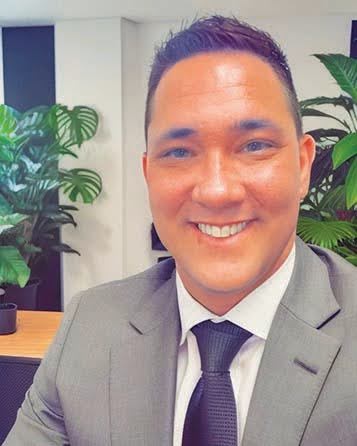By Bobbe McGinley, MA. MBA, LISAC, NCGC II, BACC
According to a survey by the American Gaming Association, 22.7 million U.S. adults bet on Super Bowl LIII, wagering $6 billion on the game — a 26 percent jump from a year ago! The increase is attributed to the number of states now offering legal sports betting. Despite the massive rise in legal betting venues, 1.8 million people placed illegal bets through a bookie, while even more placed illegal wagers through offshore gambling sites.
What’s the Harm in it?
For many people, gambling is entertainment. What’s the harm with a few hours out with friends at a casino or a weekly card game? With problem gamblers the excitement and the release of the pleasure chemicals in the brain creates the need for more — driving the urge to gamble again and again. Just how gambling impacts the brain and triggers an addictive cycle is similar to the way drugs become addictive. First the tangible reward, the win — followed by a flood of pleasure chemicals in the brain providing another positive reward.
Since these are delivered randomly, problem gamblers keep betting to feel good. Though not all people who gamble have a problem, just like all people who have a drink don’t become alcoholics.
What is Problem Gambling?
Problem gambling includes all gambling behavior patterns that compromise, disrupt or damage personal, family or vocational pursuits. If there is a preoccupation with it, the need to place larger bets, restlessness or irritability when attempting to stop, “chasing” losses, and mounting, serious, negative consequences, there is a problem. This often results in financial ruin, legal problems, loss of career and family, or suicide. Anyone who plays can develop problems if they aren’t aware of the risks and do not gamble responsibly. When this behavior interferes with finances, relationships or work, a serious problem already exists.
Can You be a Problem Gambler if You Don’t Gamble Every Day?
The frequency of a person’s gambling does not determine whether or not they have a problem. Even though a problem gambler may only go on periodic binges, the consequences will be evident including the effects on the family of the gambler. The amount of money lost or won does not determine when there is a problem. It becomes one — when it causes a negative impact on any area of an individual’s life. Most are unable to maintain solvency or provide basic support for themselves or their family. When their borrowing resources are strained, they may resort to antisocial behavior to obtain money — including theft, embezzlement, fraud and other crimes.
Older Adults and Gambling
Retirees with a pension and social security income, are easy targets for gambling. Many seniors may go through a period of boredom after years of working.
Going to casinos can be a thrill, especially with an occasional win. Trips to casinos are a way to socialize, another aspect of life that tends to drop off after retiring. Seniors are the fastest growing demographic engaging in gambling. Half of all visitors to casinos are over the age of 50, and 70 percent of seniors report having gambled in the last year. With the baby boomer generation coming into the retirement phase, these numbers will rise.
When people are coping with big changes, they are more vulnerable to develop a problem. Many will face life transitions and losses, such as death of loved ones, end of career and isolation from family and friends.
Many addicted seniors are gambling their retirement funds away or spending too much of their fixed income, leading to unmanageable financial strain. Over time, they feel the financial burden of continued betting and often believe they must continue gambling to overcome their financial stress. Once addicted, it can be very difficult to break this cycle that will eventually lead to financial ruin.
How to Identify Gambling Addiction in Seniors
• Your family member or friend may appear withdrawn or unavailable.
• They may be vague when describing their days and activities.
• They may have sold off their valuable belongings for unexplained reasons.
• They speak of exciting wins — but never their losses.
Intervening on 74 year old Marie
Marie had been secretly gambling since the death of her husband five years ago. Even though she received a large sum from his life insurance policy and was collecting social security, she began asking her children for financial help. When the family met they realized they needed to assist her in getting the help she needed. Lovingly, but firm, they told her they were not going to give her money to pay bills or any other of her debts.
Her adult children took her to an open Gambler’s Anonymous meeting. They helped her make phone calls and write letters to people she owed money.
They encouraged, supported and treated her with dignity. She attended meetings by herself, found a GA sponsor and began to feel worthwhile as a human being again. In early recovery it became apparent Marie needed extra help in dealing with her shame and guilt and she decided to get individual counseling from a therapist who specialized in gamblers, their relationship with money and a lifetime of being impulsive and irresponsible. While it was not an easy go at first, today, she is grateful her family intervened and she continues to be part of the GA fellowship,
helping other women.
Gambling and Suicide
Suicide is a very real and an all too common consequence of problem gambling. No other addiction has as high a suicide rate as gambling. The National Council on Problem Gambling estimates one in five gambling addicts will attempt to kill themselves, this is about twice the rate of other addictions.
According to Michael Goldman, senior employee assistance program counselor in Cook County IL, it’s estimated that 18-25 percent of compulsive gamblers will attempt suicide. With an estimated two million compulsive gamblers and fourto-six million problem gamblers in the U.S., the potential for larger numbers of suicide deaths brought on by gambling is significant. Paying the Ultimate Price Unlike with other addictions, such as drugs and alcohol, there is no physical effect on the body.
“The amount of financial devastation you can wreak plays a big role,” says Keith Whyte, executive director of the NCPG. “You can bet $50,000 in a
single hand, every minute.” Problem gamblers often sufferfrom associated disorders that exacerbate their struggles. Substance abuse
issues or problems with depression and anxiety are frequently “co-occurring” among those who have a gambling addiction.
Gamblers who have landed themselves in debt are no longer simply chasing a high, they are trying to evade catastrophe. You’re always one bet away
from winning everything back. And, again, there is no limit to the amount of money that can be devoted to this pursuit. Unless the gambler just
stops, which is unlikely without outside intervention, the problem becomes compounded with every attempt at a solution. It is the cruelest catch-22.
We have no real way of knowing how many people follow through with suicide from gambling. Gamblers are, by nature, impulsive and secretive — the ones who leap from a multi-story parking deck after a bad night generally don’t leave suicide notes, while those who do tend to gloss over the reasons for their self destruction.
Teens and Gambling Problems
Youth gamble for many different reasons.
• Entertainment, socialization
• Competition, escape problems
• Loneliness, depression or boredom
• Peer pressure
• Think it is a quick way to get rich
• Be the center of attention
• As a way to make friends
• Winning provides an instant, temporary boost of confidence Teen Gamblers have higher rates of:
• Crime (theft, robbery, embezzlement)
• School problems (low grades, truancy, behavior issues)
• Family problems (withdrawal, behavior issues)
• Peer relationship problems
• Legal and money troubles
• Depression; suicidal thoughts and attempts
• Dissociative, “escape” behaviors
• Risk for co-occurring addictions including alcohol and substance use
• Youth can hide gambling problems well. There are no outward, noticeable signs as there are with other addictive behaviors (needle marks, slurred speech).
Arizona Gambling Laws
Arizona gambling laws allow most forms of gambling. Given the state’s proximity to Nevada, Arizona lawmakers decided long ago they would legalize
many forms of gaming to keep the tax revenues in the state. Arizonans were going to be gambling anyway, so it only made sense to keep a percentage
of those entertainment dollars in-state.
Though it has a reputation for conservative politicians, Arizona’s GOP has a long history of more libertarian ideas (Barry Goldwater) when it came
to their citizens’ activities. That means Arizona has 22 land-based casinos, including tribal and commercial casino operators.
Laws that Pertain to Arizona
Gambling
Arizona is a permissive state when it comes to gambling laws. The Arizona Constitution has large sections on its gaming regulations, including blocks of definitions for the betting terminology. The quotes below should give readers an idea of the statutes. The upshot is Arizona lawmakers are serious about their gambling laws and regulations. They want residents to play, but play legally.
Is Gambling Legal in Arizona?
Most forms of land-based gambling are legal in our state. Online gambling is not authorized, probably because the land-based casino operators do not want the competition. Gov. Doug Ducey stated in November 2018 his support for sports betting legalization, though the Arizona Gaming Department has not changed its policies banning sportsbooks.
One reason for the Gaming Department’s reluctance to change the sports wagering law is the requirement it would have to change the gaming compact. For that reason, expect to see the Arizona state legislature take up the issue instead of the existing regulators. For the time being, most other forms of conventional brick-and-mortar gambling are legal.
Is Online Poker Legal?
Arizona online poker is not licensed or regulated. Plenty of online gamblers sign up at poker sites, casino sites, and online sportsbooks. This is
done in an unregulated market, though, so players should beware when they do so. Though many legal live poker venues exist in Arizona (or perhaps because of it), online poker is done through offshore online cardrooms.
Is Sports Betting Legal?
Sports betting is more likely to be legalized in the near future. Eilers & Krejcik estimates that 32 US states will legalize and regulate sports betting in the next 5 to 7 years. While Arizona is not at the top of the list, it’s on the list of the 32 likely to regulate sportsbooks. Gov. Doug Ducey supports legal sports betting, so he likely will sign any bill the legislature passes.
Daily fantasy sports operators like DraftKings and FanDuel are active in Arizona, though they also operate in an unregulated market. Stacy Stern of
the Fantasy Sports Trading Association said she has spoken with Arizona Attorney General Mark Brnovich and he claims DFS gaming is a banned form
of gambling in his opinion. Brnovich said daily fantasy sports would be under the heading of banned “amusement games”.
Despite the Arizona AG’s stance on DFS sites, Mark Brnovich has never issued an official opinion on the subject, so DraftKings and FanDuel still accept real money play from DFS owners. If anyone sponsors a sports betting bill in Arizona in 2019, it would not be surprising to see daily fantasy sports added to the list of approved games.
Your Relationship with the Gambler
Problem gambling can strain relationships. Suggestions include:
• Inform the gambler of the negative impact their gambling is having on you. Communicate your feelings carefully and openly.
• Don’t try to take control of the gambler’s life. It won’t work.
• Let the them know you want to help. They may feel out of control, embarrassed or ashamed. Convey a willingness to support them.
• Relate to them as an equal.
• Avoid trying to protect them.
• Support them in their struggle, but don’t take on their burden. Choose to say ‘I can’t do this for you, but I will be with you while you do it’.
• Allow them to take responsibility for their behavior. For example, let them deal with creditors and their employer. Do not help them lie and deceive.
Avoid Financial Harm
In most cases, people who have a gambling problem have difficulty handling money. Take steps to protect yourself and those around you from financial harm.
• Seek professional advice about how to protect your family’s assets and income.
• Do not lend the gambler money.
• Do not pay the gambler’s debts.
• Decide if you can manage the gambler’s money. If not, you may need to maintain separate bank accounts and credit cards.
• Remove your name from joint accounts to avoid inheriting any debt. A gambling counselor can help you avoid a bad credit history if you have joint credit or loans with the gambler.
Take control of finances, organize direct debits for bills, mortgages and regular debits, and limit access to cash.
• Budget and allow each member of the family some spending money, including the problem gambler.
• Check the mail yourself for bills.
• Keep records of all finances including assets, income, expenses, contributions and gifts.
• Photocopy (and keep in a safe place) copies of important documents such as house title, marriage and birth certificates, and tax file numbers.
• Don’t sign anything you don’t understand or are not prepared to pay for.
• Do not lend credit cards or share ‘pin’ numbers.
Confide in Trusted Friends
Friends or family members can often feel isolated and alone. It may be helpful to seek support from others. Talk to trusted people who will not judge you or the gambler. Consider talking frankly to other affected members of the family to support each other.
Socialize
Spend time with others socializing to relieve stress. You don’t need to talk about your concerns if you don’t want to. Having time out to do things you like can stop you from getting consumed by someone else’s gambling. Maintain your friendships, continue to do things you find enjoyable.
Your Relationship
You may need to put emotional and physical distance between you and the gambler. Your relationship with them may cease or dramatically change in
the short or long term. If taking action puts your safety or the safety of others at risk, you may need professional help.
Relationship counseling and mediation can be a safer alternative for discussing problems and seeking solutions if there is a communication breakdown
between you and the gambler.
It’s Not Your fault
Coping with a family member or friend’s gambling behavior can be exhausting. Use your energy to help change your own situation rather than theirs.
It is important to remember:
• You can’t force your family member or friend to acknowledge their gambling is a problem.
• You can’t force them to stop.
• No matter what you say or do, the only person who can stop gambling is the gambler.
• Gambling is the problem, not the person.
• You are not to blame.
Seek Support
Coping with a loved one’s problem gambling can be very distressing. Talk with a professional who understands problem gambling if you are starting to experience overwhelming sadness, anxiety or anger. Counseling or selfhelp groups can help you make important decisions about your relationship.
Things to Remember
• You have the right to feel safe, and emotionally and financially secure.
• Seek professional advice about how to protect your family’s assets and income.
• Talk to trusted people who will not judge you or the person that gambles. Consider talking frankly to other affected members of the family so you can support each other.
• Counseling or self-help groups can assist you in making decisions about your relationship.
Finding Recovery
Today, an estimated 12 million people are participating in approximately 500,000 self-help groups. All of these types of groups provide a form of social support in which individuals with common problems may share their experience, strength, and coping skills. Many self-help groups have a counterpart for friends and relatives of the person with the problem behavior and this provides an opportunity for them to connect with networks of people with similar concerns. Given the typical financial problems of the compulsive gambler, the free self-help group may be the most viable option for many.
Finding the Similarities
Gamblers Anonymous is patterned after Alcoholics Anonymous and uses a similar 12-step approach to reforming addictive behavior. Spouses of gamblers appear to share many of the same feelings and have parallel treatment goals when compared with spouses of alcoholics. Because gambling impacts the family to such a degree, many practitioners have recognized the importance of involving the spouse and (other family members) as a key component.
Some studies have utilized the spouse’s assistance in controlling the gambling behavior of their partner. For example, giving control of the finances to the non-gambling spouse, at least for an agreed upon time period, to interrupt patterns of temptation.
Family therapy is often part of institutionally based treatment. Many clinicians view marital couple group therapy as the treatment of choice. The value of working with a couple to help the pathological gambler is to distinguish the separation between the person and the addiction and assist
the couple in being able to respectfully speak their feelings, and work out a plan for financial and emotional recovery.
Couple’s meetings and professionally led couple’s workshops are valuable to augment the services provided by GA and Gam-Anon. Of all the predictors examined over the years, membership in AA and the spouse’s membership in Al-Anon had the highest positive correlation with abstinence. In examining the influence of spouses, it has been found that among the population for compulsive gamblers, and support by their spouses, both being actively involved in Gambler’s Anonymous and Gam-Anon, respectively, there was more success in recovery and in the couple’s being able to communicate effectively and bridge the gap between the addiction and successfully continuing their relationship as a couple.
Bobbe McGinley
has been working in the field of Chemical Dependency since 1988, and with Problem and Compulsive gamblers since being Certified by the Arizona Council on Compulsive Gambling, Inc. in 1996 and Nationally Certified in 1999. Bobbe works in private practice, where she is Clinical Director, Counselor and Consultant at her agency: ACT – Counseling & Education. For information 602-569-4328 and actcounseling.com for locations and services.



































